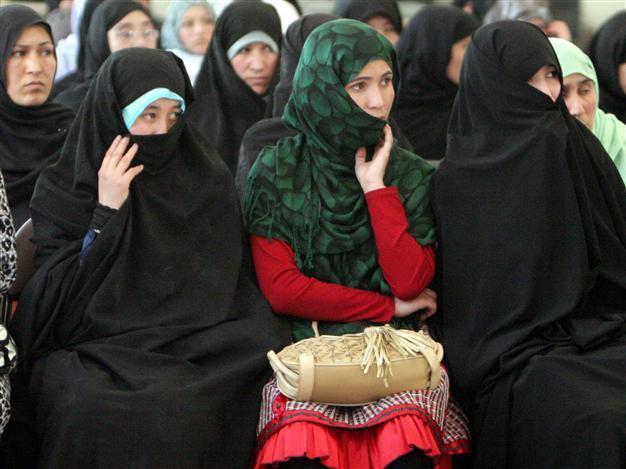Afghan academics fired for 'offensive' ethnic book
KABUL - Agence France-Presse

An Afghan security official stands guard as Afghan students attend a gathering to register their protest for the teachers whom they allege of spreading hatred for other ethnicities in the Ghazni univiersity, in Ghazni, Afghanistan, 29 April 2012. EPA photo
Afghan President Hamid Karzai on Wednesday sacked four academics from a leading research centre over a book that sparked fury for reportedly insulting the Hazara ethnic group.The head of the Afghanistan Academy of Science and three other scholars were dismissed and referred to the attorney general's office for questioning, Karzai's office said in a statement.
The "Ethnographic Atlas of the Tribes of Afghanistan", published recently, reportedly described Hazaras as liars, stubborn, violent and anti-Islamic, prompting outrage from Hazara politicians.
"The content of the book is grossly offensive and considered an insult to all the resident ethnicities and thus the entire Afghan population," the statement quoted Karzai as saying.
Hazaras make up an estimated 15 to 20 percent of the war-torn nation's ethnically diverse population, and Hazara Shiite Muslims suffered brutal persecution under Taliban rule in the 1990s.
Karzai's government is a delicate mix of the three main ethnic groups -- Pashtun, Tajik and Hazara -- and has ordered the book withdrawn from circulation.
The publication led to fierce debates on television chat shows, and was condemned by Hazara lawmakers in parliament.
Haji Mohammad Mohaqiq, leader of the Afghanistan People's Unity Party, one of the main Hazara political factions, condemned the book and called for the authors to be punished.
Ethnic divisions in have led to some of the most brutal conflicts in Afghanistan's bloody history.
The mountainous country's total population is estimated to be between 24 to 35 million, but no census has been held since the 1970s due to three decades of war.
















